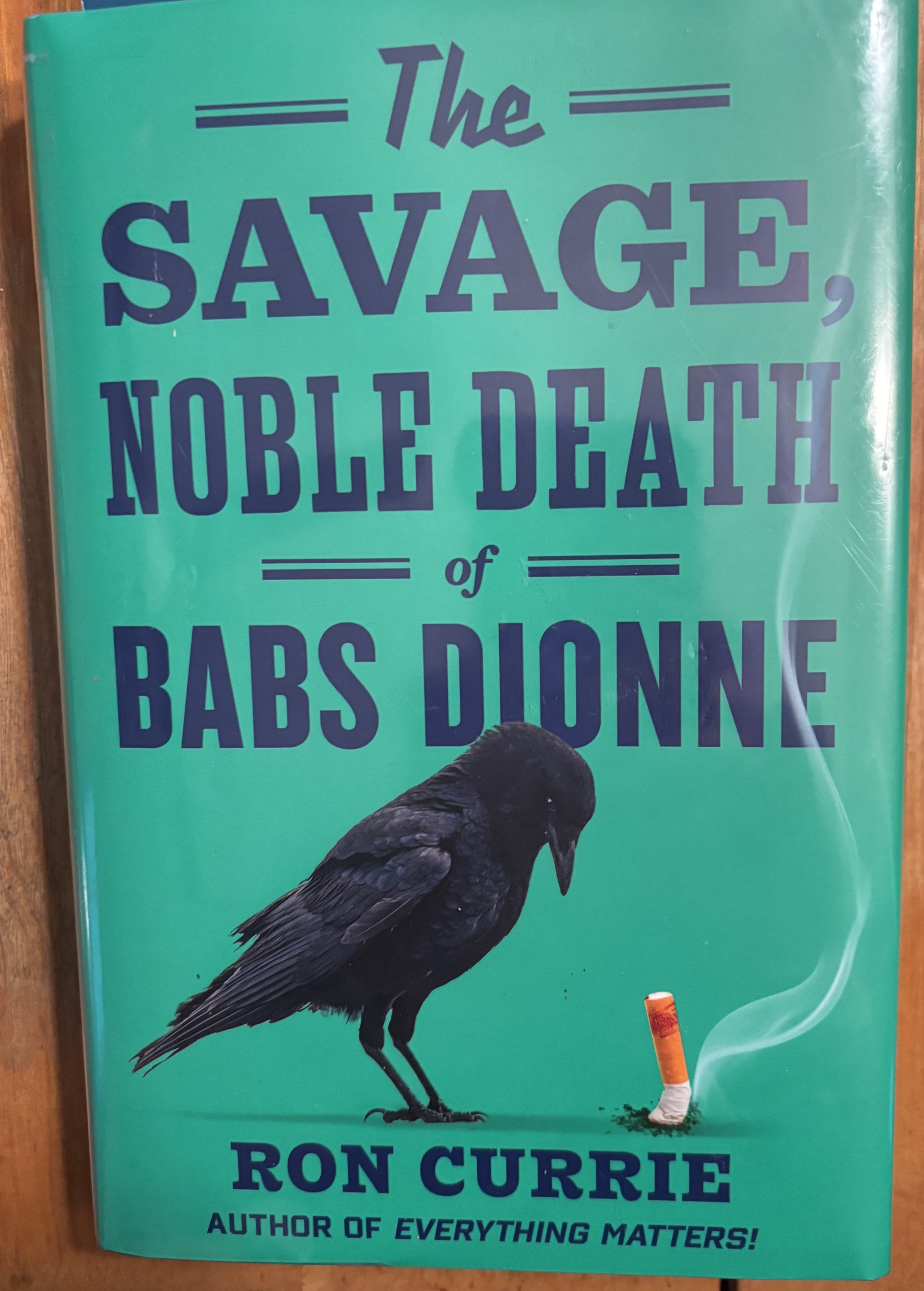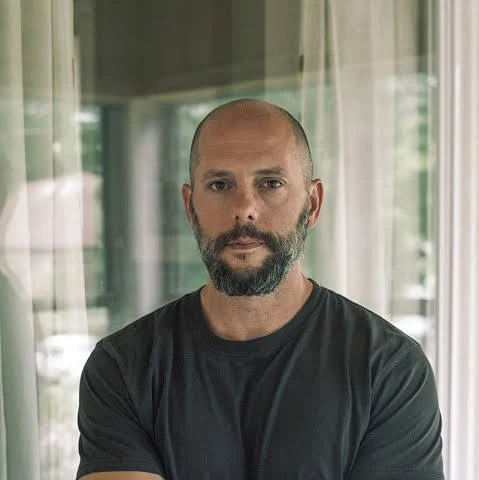The Savage, Noble Death of Babs Dionne

Not supposed to judge a book by its cover, but...
One look at The Savage, Noble Death of Babs Dionne, told me to make an exception to that rule.
You can see the picture for yourself. Something about that black crow staring at that snubbed-out cigarette butt told me–Benny, ol’ boy, read this book!
And a good read it is–well done, Mr. Ron Currie.
Vintage tough-guy noir–or, in this case, tough-gal noir.
Also, it introduced me to a subset of America I’d never explored–even after all these years of reading. That would be Franco-Americans, tough-ass descendants of French-speaking Canadians, now living in Maine or other parts of New England.
In his acknowledgement, Currie gives a shoutout to Jack Kerouac, who I think of as the quintessential Beat, crossing the country with his beatnik pals and getting it all down in On the Road, a powerful burst of stream of consciousness.
What I didn’t know is that Kerouac was a descendant of French Canadians. His first language was French. And he showed off his loyalties to his past in Vision of Gerard, a novel dedicated to the short life of his older brother. Which I've now read.
I knew none of this until Currie's acknowledgements led me to enlightenment. So that cover paid off in more ways than one. But I digress…
Currie’s novel is set in Waterville, Maine, a place crawling with politically correct hypocrites.
The Franco-Americans live on the poor side of the tracks. And they don’t play. Especially Babs Dionne, the toughest of the bunch--a badass Boomer making one last stand against the Anglos.
Ron Currie--spiritual son of Kerouac...
You know, this just could be the season of tough working-class women in noir. Before Babs there’s Mary Pat Fennessy, the working-class hero of Small Mercies–Dennis Lehane’s epic novel about racist Boston in the `70s.
Mary Pat took on the Irish mob. Babs takes on an Anglo one.
Currie’s got a knack for memorial lines, like this description of the overhead LED in a hospital room “flooding the space with light the color of rigor mortis.”
The book gets political, exposing the class divide that sends working-class boys to fight wars waged by rich men, whose sons go nowhere near the battlefields.
There’s an inscription on the grave marker paying tribute to Bab’s son, who enlisted in the Marines right after 9/11. Winds up getting killed fighting a war in Iraq, a country that had nothing to do with the 9/11 attacks.
“Died for a lie”--is what it says.
Yes, we paid a deep psychic wound when we rushed off to fight those two wars after 9/11--some worse than others.
For what its worth, just about every lefty in America predicted the catastrophes that emanated from these wars. And as usual, few people listened to the lefties in the rush to war.
What we got was so much pain and torment. And some good reads, like The Savage, Noble Death of Babs Dionne.
I still don't know exactly what that cover illustration is getting at. Doesn't matter. It did its job--and more.







